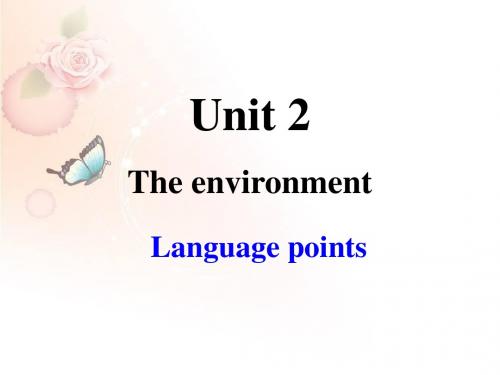language points
- 格式:ppt
- 大小:275.50 KB
- 文档页数:46




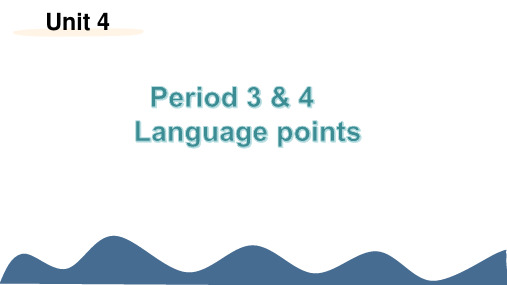

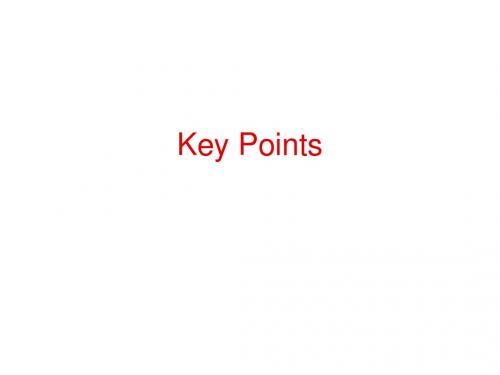
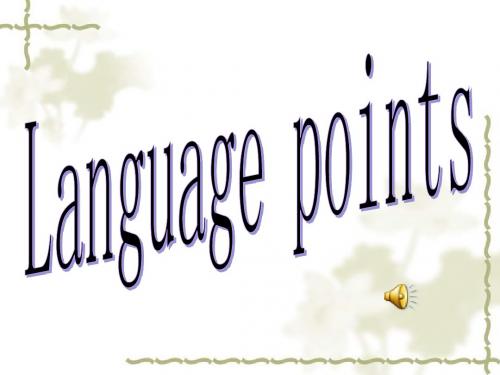
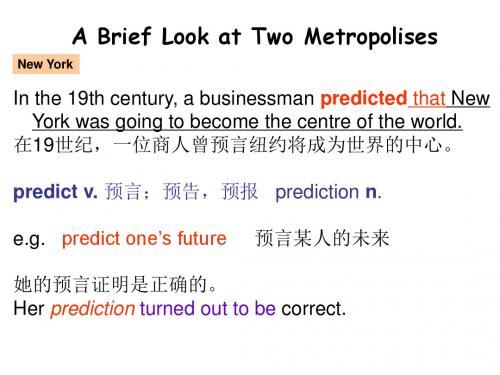


Language points1.KEEP IT UP, XIE LEI (P38)谢蕾,再接再厉★keep it up保持优秀成绩;继续干下去keep up坚持;维持;沿袭(风俗、传统等)keep up (with) 赶上;不落在后面keep in touch with 与······保持联系keep ... out of 不使······入内;不惹事keep away from (使)不接近①If he could keep it up, he would break the world record again.如果能再接再厉,他会再次打破世界纪录的。
②The modern world has been developing very fast. Every country must keep up with the time.现代世界一直在飞快地发展变化。
每个国家都需要与时俱进。
③They keep in touch with each other through the Internet.他们彼此通过因特网保持联系。
2.Chinese student fitting in well (P38)中国学生适应能力强★fit in相适应;相融和(1)fit in with适应,适合;与······合得来(2)be fit for 胜任;适合;合格be fit to do sth. 适合做某事keep fit 保持健康①He tried as much as he could to fit in but he could not because his mind was at home.他尽可能地去适应,但是做不到,因为他的心思在家里。
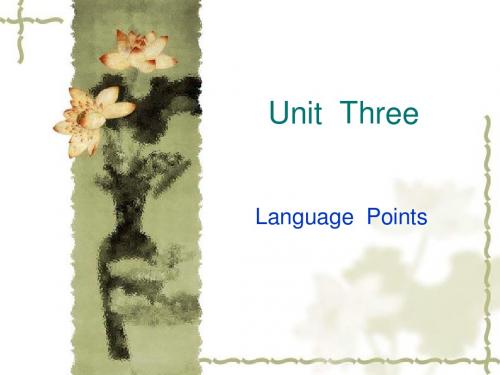
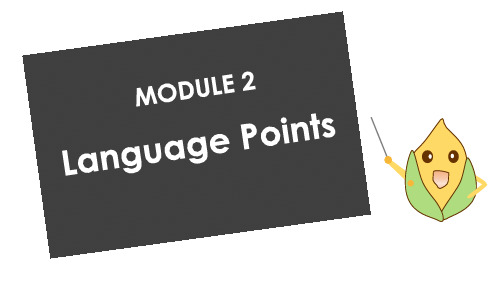
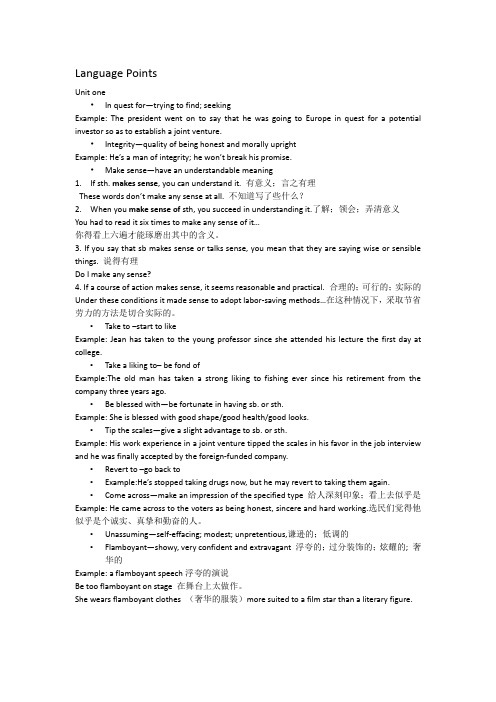
Language PointsUnit one•In quest for—trying to find; seekingExample: The president went on to say that he was going to Europe in quest for a potential investor so as to establish a joint venture.•Integrity—quality of being honest and morally uprightExample: He’s a man of integrity; he won’t break his promise.•Make sense—have an understandable meaning1. If sth. makes sense, you can understand it. 有意义;言之有理These words don’t make any sense at all. 不知道写了些什么?2. When you make sense of sth, you succeed in understanding it.了解;领会;弄清意义You had to read it six times to make any sense of it…你得看上六遍才能琢磨出其中的含义。
3. If you say that sb makes sense or talks sense, you mean that they are saying wise or sensible things. 说得有理Do I make any sense?4. If a course of action makes sense, it seems reasonable and practical. 合理的;可行的;实际的Under these conditions it made sense to adopt labor-saving methods…在这种情况下,采取节省劳力的方法是切合实际的。
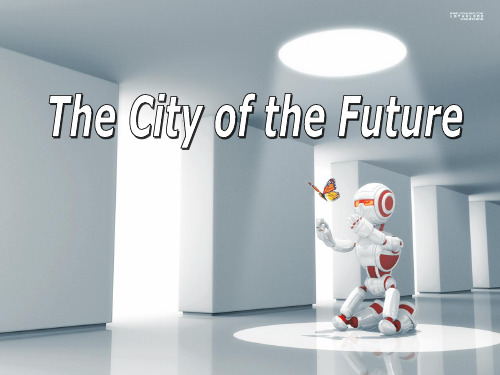

Language points知识要点:1、介词从这里开始,我们就要接触事物和它们所处的空间的关系了。
我们用介词来体现这种关系。
介词后面可以接名词或代词,作为介词的宾语。
如果后面是人称代词的话,要用它的宾格形式,即:him, them, her,us, it, me, you等等。
1). in表示“在……中”,“在……内”。
例如:in our class 在我们班上in my bag 在我的书包里in the desk 在桌子里in the classroom 在教室里2). on 表示“在……上”。
例如:on the wall 在墙上on the desk 在桌子上on the blackboard 在黑板上3). under表示“在……下”。
例如:under the tree 在树下under the chair 在椅子下under the bed 在床下4). behind表示“在……后面”。
例如:behind the door 在门后behind the tree 在树后2、bring和take的区别bring 意思是带来,拿来,取来,指从别处把某人或某物带到或拿到说话者所在的地点来。
例如:Why don't you bring him along? 你为什么不带他一块儿来呢?My books are upstairs; will you bring them down? 我的书在楼上,您可以把它们拿下来吗?Socialism brings us freedom and happiness.社会主义给我们带来了自由和幸福.Take 意思是带去,拿走,和bring相反,指从说话者所在地把某人或某物带去或拿走。
例如:We'll take the students to the middle school.我们将带学生到中学去。
Some one has taken my dictionary.有人把我的字典拿走了。
